If you’re travelling to Japan, you’re probably pondering Japan safety tips and whether the country is safe. Here’s a rundown of Japan travel safety and all you need to know, along with a few pointers for your time here.
Is Japan safe?
Japan is generally a pretty safe place to be. In fact, on the Safe Cities Index 2019 by the Economist Intelligence Unit, Tokyo topped the list for overall safety worldwide, with Osaka not far behind in third place. So, whether you’re flying solo or with mates, there are some handy Japan safety tips to keep in mind.
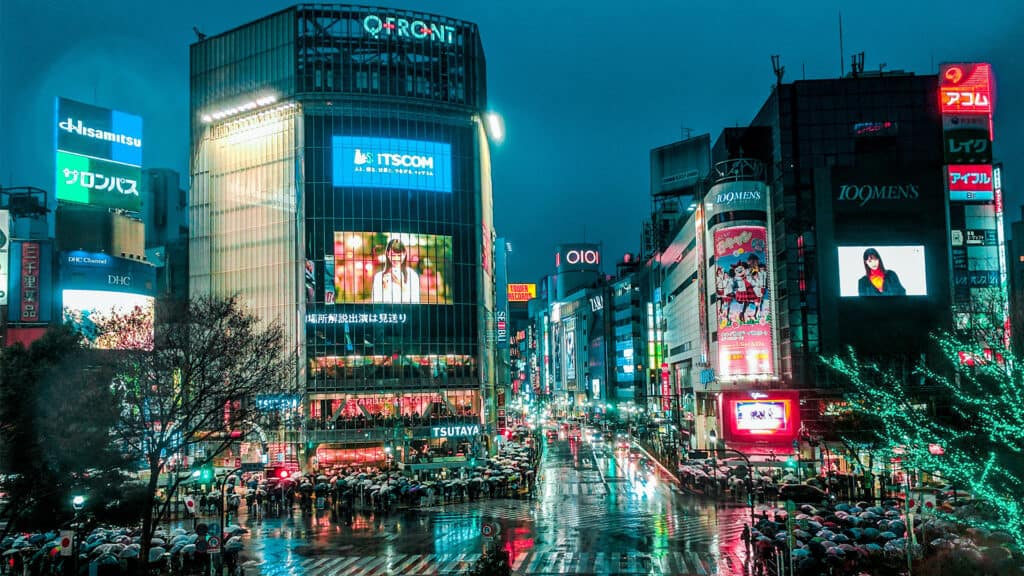
Crime rates in Japan are among the lowest globally, and they’re still dropping. Lately, the most common crimes have been online scams and billing fraud. Scammers often target older folks, pretending to be relatives over the phone to trick them into sending money.
Japan Safety Tips for Public Transportation
Trains
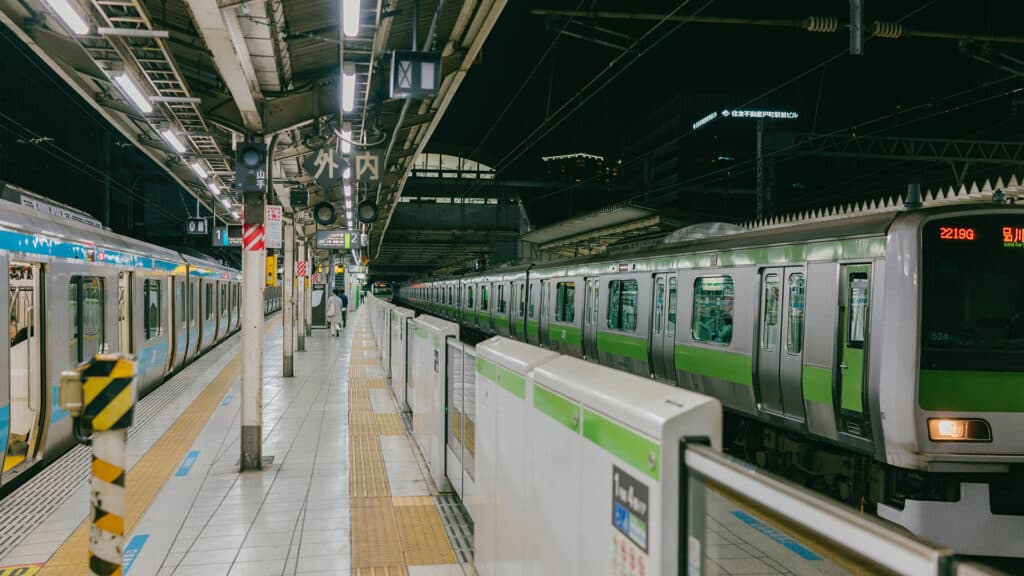
Most people in Japan commute by trains, and you probably will too while you’re here.
You’ll notice that folks tend to keep to themselves on all forms of public transport. Train carriages and buses are usually pretty quiet, with most people glued to their phones and barely interacting with others.
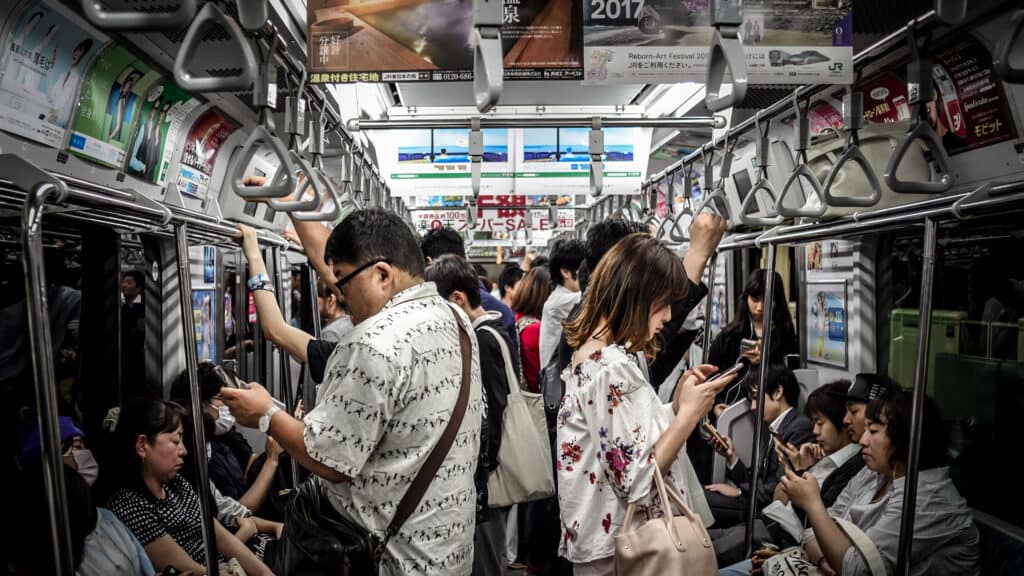
Due to its high population density, train stations and trains can get seriously packed, especially during rush hours. Japan boasts 23 of the busiest train stations globally, with a whopping 14 of them in Tokyo alone. Every day, millions of locals and tourists pass through these stations. During peak times, you might feel seriously overwhelmed and bewildered.
Shibuya and Shinjuku take the top spots as the world’s busiest stations, and you’re likely to find yourself in these bustling areas. You may have seen online videos of folks crammed onto trains or station staff packing commuters in like sardines – and yeah, that’s true for some stations at certain times.
If you’re not keen on dealing with big crowds, it’s best to steer clear of public transport during rush hours. For your Japan safety tips, keep an eye on your surroundings and move swiftly to avoid collisions.

The peak of rush hour is typically around 7:00-8:30 and 17:30-18:30 on weekdays. If you’re looking for a more comfortable ride and the chance of snagging a seat, it’s best to hop on the train between 10:00-16:00 on weekdays.
Commuting by train is generally safe, but it’s important to be aware of Japan safety tips, especially regarding the issue of chikan, or molestation, which remains a significant problem. Chikan incidents are most common on crowded trains. In Japanese society, there’s often pressure to maintain harmony, so victims may hesitate to speak out. To address this issue, some trains offer women-only carriages, though these are only designated as such until 9:30am.
Having lived in Japan for over six years, I’ve been fortunate enough not to experience such incidents personally. However, I know people who have had unpleasant encounters on public transport. It’s been reported that young girls in school uniforms and office ladies are often targeted in chikan cases.
There have been some recent debates about whether “women-only carriages” should be abolished, with concerns raised about perceived inequality by men. However, with over 70% of women strongly supporting the importance of these carriages for their safety, it’s unlikely they’ll be removed anytime soon.
If you encounter or witness chikan (molestation) on public transport, it’s crucial to report it to the train conductor. They’re there to assist you and will involve the police if necessary. Such incidents can be shocking, so if you’re unsure how to react, it’s okay to disembark at the next stop and gather your thoughts.
Overnight Buses

Overnight buses are an option for long commutes in Japan. They’re known for being some of the cleanest and most comfortable rides you’ll ever experience. While there are many women-only overnight buses available, the regular ones are equally safe and comfy.
Taxis

For those wondering about the safety of taxis, rest assured, they’re perfectly safe. Taxi drivers in Japan are known for their politeness and professionalism. They typically keep to themselves and won’t engage in conversation, unlike the more talkative drivers you might encounter in other countries.
Even if you’ve been out drinking and find yourself feeling a bit (or very) drunk, taxi drivers are accustomed to it and will still take you without hesitation. If you start feeling unwell during the ride, don’t worry—taxi drivers usually have plastic bags on hand for such situations, or you can simply ask them to pull over. And even if you’re travelling alone, you’re likely to be perfectly safe in the taxi.
Japan Safety Tips for Navigating the Streets Safely After Dark
When it comes to walking around at night for your Japan safety tips, it’s pretty common to see people out and about at all hours. With many shops and restaurants staying open 24/7 or until the wee hours, especially convenience stores, you’ll find plenty of company.
In the city, you’ll likely encounter other folks around, thanks to the bright city lights keeping the streets well-lit and safe. However, if you venture into neighbourhood areas or back alleys, things can get a bit darker and quieter. Just stay vigilant and keep an eye on your surroundings, and you should be fine.
If you ever feel followed, approached, or uneasy in any way, head to one of the many police boxes or stations nearby and ask for assistance. Not sure where to find one? Look for a 24-hour convenience store—they’re always bustling, and with security cameras in place, you should feel relatively secure.
While cases of stalking in Japan do exist, they’re rare, so it’s not something to be overly worried about. Just remember, trains don’t run all night in Japan, so make sure not to miss your last train, or you might end up stranded or facing a pricey taxi ride.
Japan Safety Tips for Avoiding Pickpocketing and Theft
Japan is probably one of the countries where you can forget your phone somewhere, come back hours later and still find it sitting there, and no one touched it. If you were to forget something somewhere and go to lost and found, you will probably get it back.
In Japan, it’s one of the few countries where you can forget your phone somewhere and return hours later to find it still there, untouched. Or, if someone has picked it up, they’ve probably turned it in to lost and found centres. In Japan, it’s extremely likely you will retrieve your lost items.
There have been several personal cases where I’ve left my phone or bag in trains, restaurants, convenience stores and, after realizing this and coming back to look for them, I have been lucky to be able to retrieve them.
This is not to say you should leave your things just anywhere in public. If you were to leave something behind on trains or buses, if it was handed in, you usually have to travel to the lost and found centre and that could be a hassle.
If you lose something in Japan and are unsure what to do, here is a blog that tells you what you need to do, what you need to say, and where you need to go in this case.
Is Sleeping on the Streets in Japan Safe?
Japan is so safe that you could pass out on the streets and wake up with your wallet, phone, and other belongings still in your pockets.
If you’ve been in the Shibuya or Shinjuku area during the nighttime, you have probably seen drunk Japanese people sleeping on the streets. There are also people sleeping on public transportation, in restaurants, cafes, and all kinds of places. You will often see people with their bags lying around, phones, and wallets hanging out of their pockets.
If you’ve heard of the “Shibuya meltdown”, what I have described here is the phenomenon, and you can find a lot of funny photos for your entertainment.
Areas in Japan Where You Should Exercise Caution
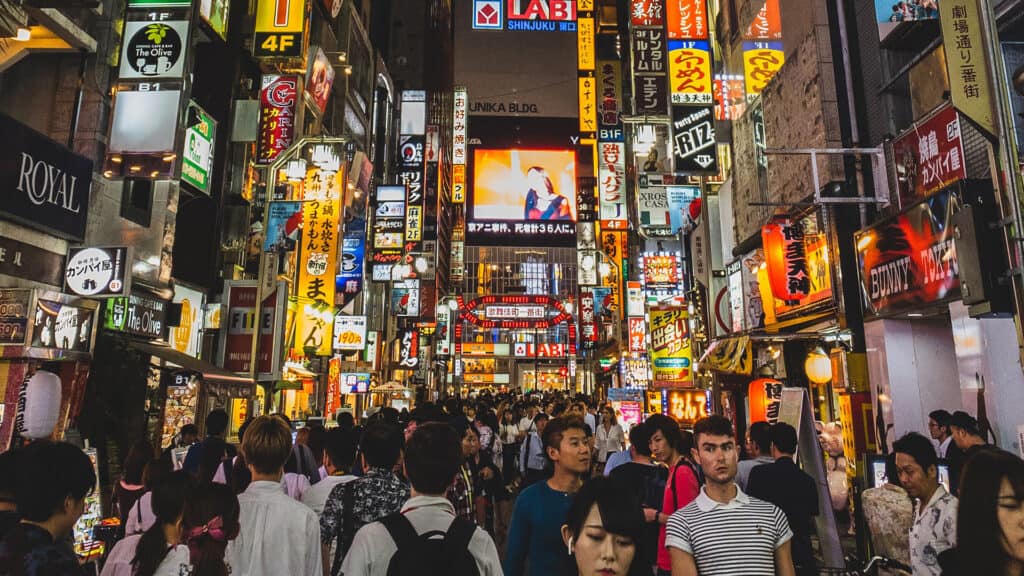
When considering Japan safety tips, Kabukicho in Shinjuku often springs to mind as the red-light district of Tokyo, boasting numerous restaurants and bars. It’s generally a safe area for a stroll and exploring different spots, but there are some points to keep in mind.
As you wander the streets of Kabukicho, you’ll encounter many “information centres”. These aren’t your typical tourist spots but rather venues offering escort services and prostitution.
Should you venture into one of these establishments, bear in mind it’s not merely a browsing experience – they’ll likely encourage you to stay and spend money. It’s best to steer clear of such places.
Kabukicho also hosts numerous host and hostess clubs, where patrons pay seating fees for premium drinks and the company of hosts or hostesses. While the system is usually transparent, costs can escalate quickly, especially as the drinks flow and time passes.
As you stroll Kabukicho’s streets, you may be approached by staff from various clubs, bars, and services, touting their offerings. It’s advisable not to follow them, as there have been instances of patrons being coerced into paying hefty sums for undisclosed services, often operating in legal grey areas or outright illegal.

Roppongi is another area warranting caution. While it boasts vibrant nightlife, some establishments operate in grey areas. Instances of spiked drinks, overcharging, or targeting intoxicated individuals have been reported.
On Roppongi’s streets, you may encounter individuals peddling drugs or sex services. In such situations, it’s best to ignore them and swiftly move on, avoiding entry to these establishments.
Similar to Kabukicho, Roppongi’s streets attract workers who target intoxicated individuals. Stay vigilant, keep an eye on your drinks, and frequent establishments you trust in these areas.
By remaining aware of these factors, you’re sure to have a great time.
Japan Safety Tips for Dealing with the Dreaded ‘Nanpa’
While most Japanese people tend to be relatively quiet and reserved, there are certain situations where they become more vocal and confident, particularly when they’re intoxicated.
It’s common to see men approaching women on the streets, especially at night. Often, you’ll observe a man inviting a woman for tea, coffee, or a drink together. If they’re turned down or ignored, the man will likely move on to find a new target. This is known as nanpa, the act of hitting on someone.
Particularly after trains have stopped running on weekends, you’ll find groups of male friends mingling and chatting with girls. In most cases, they don’t mean any harm and are simply looking for a friendly conversation. However, if you ever feel unsafe or threatened, don’t hesitate to seek help from the police box.
Japan Safety Overview
Japan is indeed a safe country, offering travellers a welcoming and secure environment. Whether you’re planning your trip for next week or next year, it’s essential to consider various aspects of safety to ensure a memorable and secure journey. By staying informed about local customs, being mindful of potential risks, and taking appropriate precautions, you can fully enjoy all that Japan has to offer while staying safe and secure throughout your adventure.
Stay tuned for more information about Japan travel, Japanese culture, moving to Japan, living in Japan, Japanese language, Japanese culture, and more.

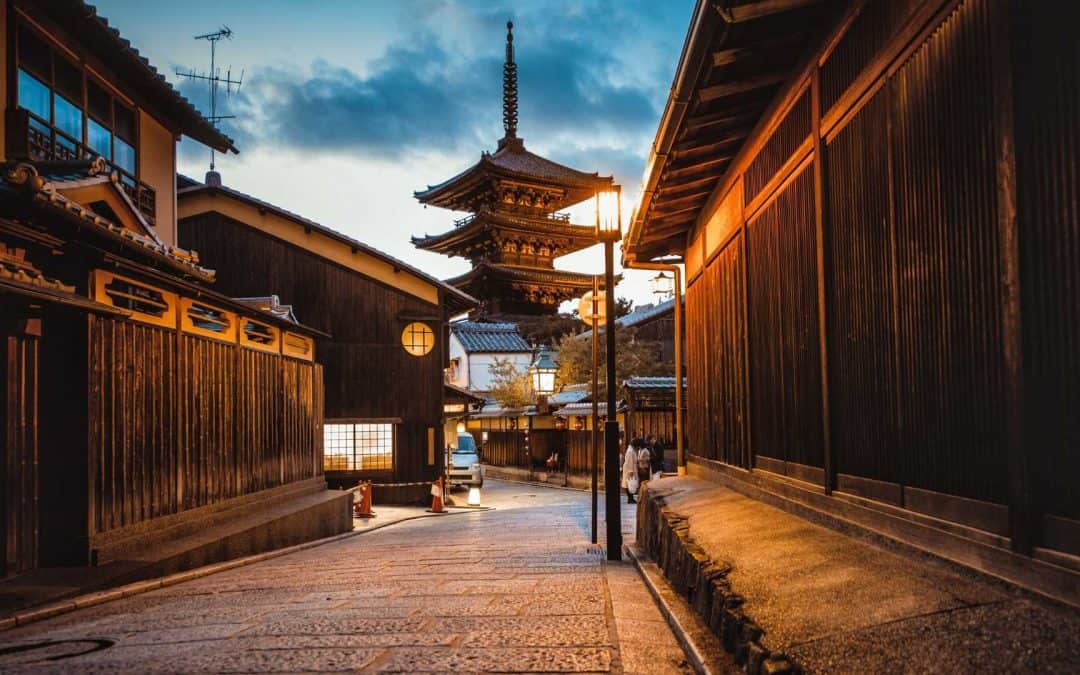
Recent Comments